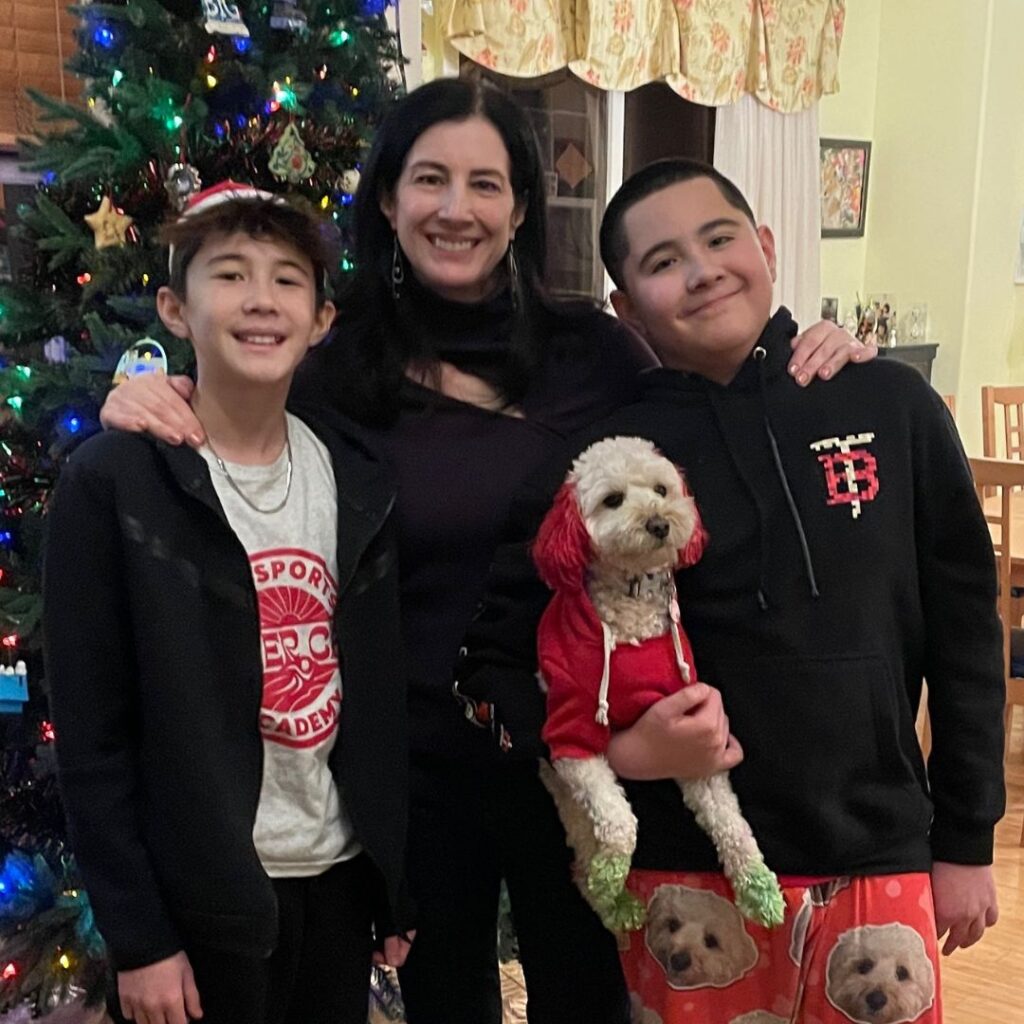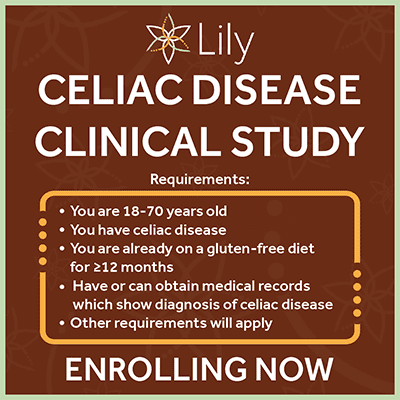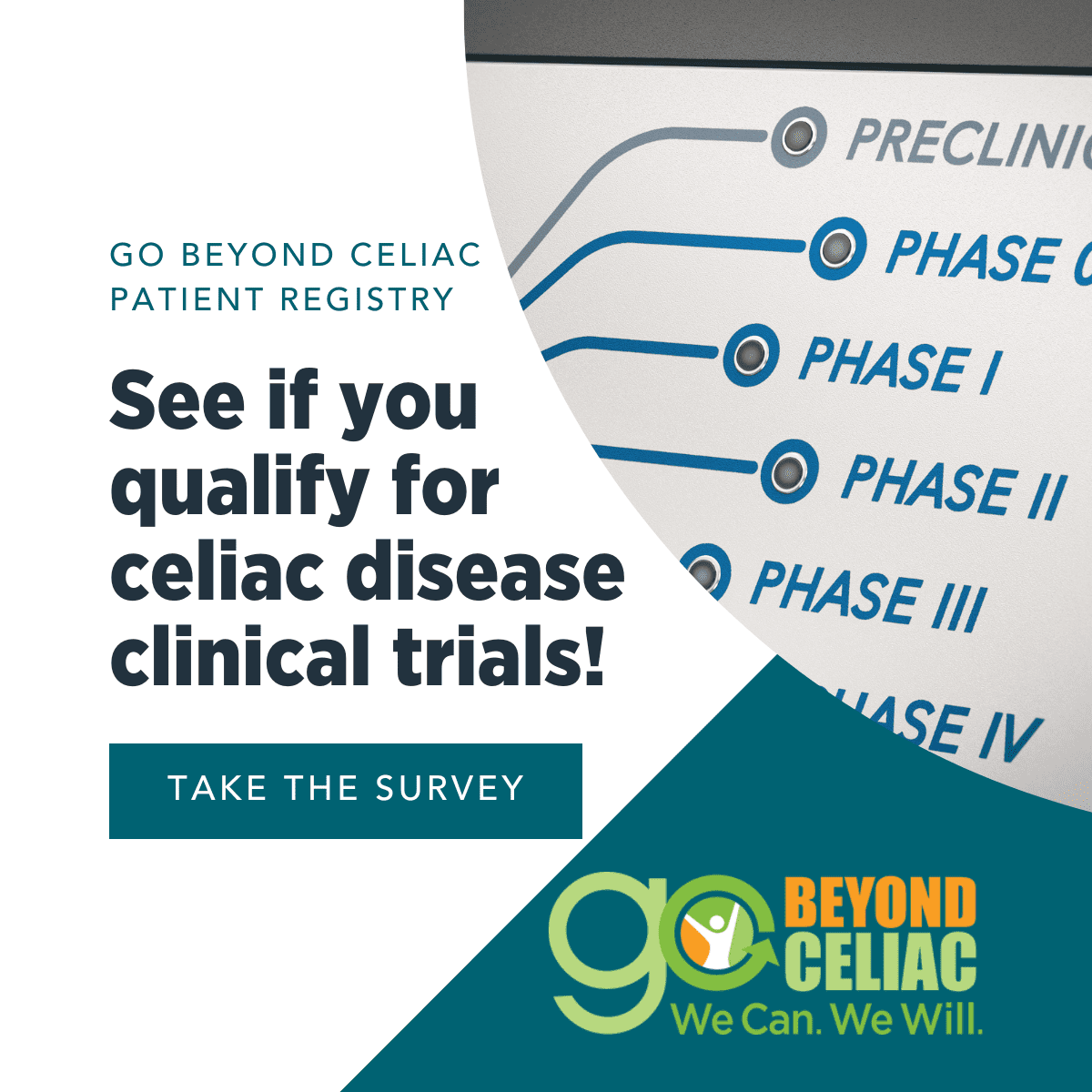Renzo and Weslan are minors, so their stories will be shared by their mother, Corine.
Describe your children’s lives prior to diagnosis.
The kids never really had any severe gastrointestinal symptoms; occasionally they’d say they were constipated or had diarrhea, but I figured it was regular kid germs and that they would let me know if it didn’t stop.
Renzo has always struggled with ADHD and emotional dysregulation, but we didn’t know these were symptoms—we didn’t even know celiac disease existed. We tried various medications, therapies, and social skills development, but nothing really made a significant difference.
Weslan has never exhibited symptoms of any kind. He tested negative when Renzo was diagnosed but positive a year later, so the doctor believes that we caught it before he sustained much intestinal damage. He has since been glutened a few times for sure, and still doesn’t have any physical or emotional reaction.
How did you find out that your children had celiac disease? Did you suspect it beforehand?
When they were in fourth grade, Renzo began to say that they were one of the shortest kids in class and asked when they would grow. Their father and I are both above average height and were late bloomers, so we thought that would be the same for Renzo. Neither of us had ever heard of celiac disease, and we were only aware of “gluten-free” as some kind of fad diet trend.
Who made the diagnosis?
Our family doctor noticed that Renzo had fallen off their growth chart curve at their 13-year-old wellness visit and sent us to an endocrinologist, who noticed elevated numbers in the celiac disease panel of the bloodwork he ordered. He, in turn, sent us to Children’s Hospital of Philadelphia (CHOP) gastroenterology.
Renzo was diagnosed in August 2020, and we were instructed to test immediate family members once a year. Weslan was diagnosed in March 2022 after previously testing negative, so he didn’t have anywhere close to the level of intestinal damage that Renzo had.
How long did it take for your children to get diagnosed since their first symptoms and what (if any) challenges did they face along the way?
Renzo was diagnosed soon after our family doctor noticed their drop in growth. In hindsight, they were exhibiting symptoms most of their life: in Renzo’s words, “It was always hard to go to the bathroom, or waaay too easy.” The ADHD and social/emotional component has always been very challenging.
Do you believe anything could have sped up the diagnosis? If so, please explain:
I wish family doctors would order routine blood work that included celiac disease every year or two, especially since the symptoms can be so varied—if people show any symptoms at all. I very much wish that doctors and therapists could be educated to direct parents to check for celiac disease in cases where kids have ADHD and social/emotional issues.
Describe you and your children’s experiences living with celiac disease:
To say it was life-changing would be a massive understatement. It took a while to re-train myself to use separate utensils and sponges, to wipe faucets and door handles as well as surfaces, and to try and ensure their father followed the same safety protocols when they’re with him. I’m very organized and great at planning, so that helps when we go out; we bring food, call ahead to restaurants, eat before parties, and always triple-check ingredients.
The change in both kids, but especially Renzo, has been nothing short of miraculous. Immediately after going gluten-free, Renzo was visibly taller. I’d measured them for their birthday two weeks prior, and when we measured again we discovered that they had grown an inch and three quarters. They gained weight and looked healthy instead of skinny, with rosy, round cheeks, and no dark circles under their eyes.
What was even better was how much better Renzo felt emotionally. Again, in their words, “Mom, I feel…calm. I’ve never felt calm in my life.” Their tantrums subsided, social skills improved, and even the ADHD is noticeably better.
Weslan’s transformation hasn’t been as dramatic since we caught it earlier, but he’s also grown at a faster rate than before diagnosis.
Celiac disease definitely makes everything more difficult, but the kids adjusted quickly, and especially for Renzo, feeling so much better makes it worth the effort. They have friends who have celiac disease, Crohn’s and food allergies, so they adjusted to it better than I did. I hate it. I feel so sad that they can’t be normal kids who can eat anything, anywhere, and never worry about an invisible sticky particle that will make them sick. They’re almost 16 and 14 now, and I worry about how they’ll navigate living on their own or with roommates. I worry about them dating and finding romantic partners who will understand and care for their sensitivities. I’m sad that they have to monitor this condition forever, and that gluten causes such a wide range of reactions, unlike nut or shellfish allergies.
It’s very frustrating to see how many restaurants don’t take it seriously. Even if the manager knows about cross-contact, we’ve had many experiences where servers do not, and they don’t follow the guidelines even after we explain them. We’ve gotten pretty good at spotting the difference between people who are actually listening and those who are dismissing us as ridiculous trend followers. I get absolutely furious inside when people say, “Oh yes, I’m gluten-free. I don’t eat bread, I totally get it.” Or when people who choose to follow an alternative diet like veganism say that they understand how hard it is. I smile and gently explain that while ingredients are a challenge, the real danger is cross-contact, that it isn’t a choice, and that damage from one small exposure takes weeks to subside.
I admit that I feel resentful and jealous of parents whose kids don’t have celiac disease. However, all of the frustration and sadness is insignificant compared to the joy I feel when I see my kids happy and healthy. I’ve been encouraged to see how much better grocery stores and restaurants are with gluten-free options and labeling, even in the short time since my kids’ diagnoses. I’m so grateful to all of our doctors, and I’m grateful that their father and I have the resources to handle the ongoing care as well as the added cost of the gluten-free lifestyle.
What would a cure mean for you?
I would love it if there were a medicine they could take that would enable them to eat anything, anytime. Our GI doctor at CHOP believes there will be one within our lifetime, so we’re going to keep hoping!
Is there anything else you’d like to add to your story?
Interestingly, my father was officially diagnosed at age 78 in November of 2021. He’d been noticing for years that gluten-free pasta made him feel better than the regular kind, and after seeing Renzo’s transformation, he had his bloodwork done. His numbers were off the charts, so he eliminated gluten and immediately felt better. I remember calling him about a week after his diagnosis, and he said, “I don’t want to jinx anything, but I think it’s helping.” I told him he can’t jinx it, it’s fixed!
It also broke my heart a little when he said that his whole life, he always thought that food just made your stomach hurt. Like Renzo, he became visibly healthier and felt better emotionally. I’ll always treasure the memory of Renzo giving Granddad the “celiac grocery store tour” and hearing them compare notes on their poops—it was so sweet and hilarious. My dad is probably the best advertisement for anyone doubting the difference that eliminating gluten can make; as he says, he’s a first-generation Italian who gave up pasta and bread in his late 70s because he feels so much better. Hard to argue with that.




